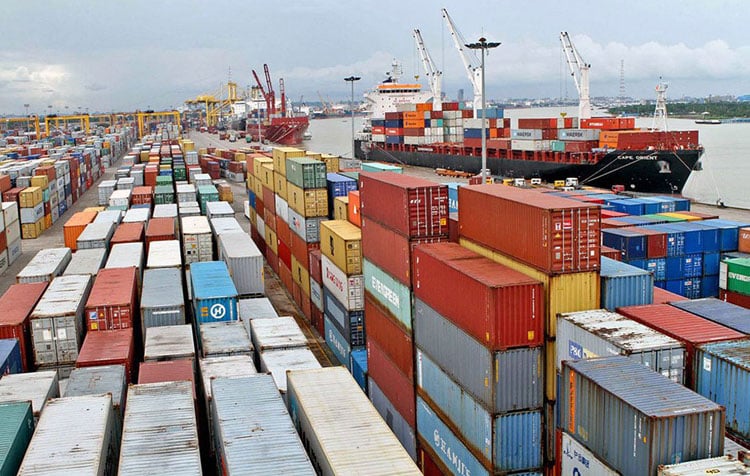Planning Adviser Wahiduddin Mahmud has said Chattogram Port holds significant potential to become a key regional trade hub, particularly for India’s northeastern states.
His remarks reflect Bangladesh’s ambition to position itself strategically within South Asia’s evolving trade and logistics landscape.
Speaking at a discussion on economic corridors and infrastructure development in Dhaka on Monday, Mahmud described Chattogram Port as one of the country’s most valuable assets.
The event was organised by the International Chamber of Commerce Bangladesh (ICCB), with support from the Asian Development Bank (ADB).
Mahmud was the chief guest, while Anisuzzaman Chowdhury, special assistant to the chief adviser, attended as special guest. ICCB President Mahbubur Rahman presided over the session.
Mahmud noted that India’s northeastern region—comprising states such as Assam, Tripura, and Meghalaya—is rich in natural resources but geographically isolated from India’s primary trade routes.
He proposed that Bangladesh could serve as a commercial bridge, allowing goods from the region to transit through Chattogram Port.
He further suggested that raw materials from India could be imported, processed in Bangladeshi economic zones, and then re-exported—facilitating value addition and mutual economic benefit.
However, the planning adviser emphasised that such a strategy depends on a favourable geopolitical climate and greater regional cooperation.
He stressed the need to strengthen internal infrastructure before expanding cross-border connectivity and warned against poorly planned or unnecessary projects that drain public resources without delivering meaningful returns.
Highlighting inefficiencies in the current development programme, Mahmud revealed that nearly 1,200 projects in this year’s budget are legacy initiatives from previous administrations.
These, he said, are absorbing most of the available resources and limiting the space for launching new, strategically important projects.
Citing an example, he pointed to the Bus Rapid Transit (BRT) corridor from Gazipur to Hazrat Shahjalal International Airport.
Initially budgeted at Tk 3,000 crore, the project now requires an equal amount in additional funding due to serious design flaws.
He also criticised the Dhaka–Padma Bridge–Bhanga expressway, noting that while it is a high-quality road, its lack of connectivity beyond Bhanga reduces its utility.
Although the Padma Bridge has improved passenger movement, private investment in the surrounding areas has not increased accordingly, raising questions about the broader economic impact of such large-scale projects.
Anisuzzaman Chowdhury underscored the necessity of efficient transport systems, noting that national development is not possible without strong internal connectivity.
He also addressed the ongoing debate about Bangladesh’s graduation from Least Developed Country (LDC) status, calling for better communication and preparation to dispel public confusion.
In the panel discussion, Dr Selim Raihan, Executive Director of the South Asian Network on Economic Modelling (SANEM), argued that infrastructure alone is insufficient. Without an enabling business environment, infrastructure investments will not yield their full potential.
He criticised the economy’s overreliance on the ready-made garments (RMG) sector and highlighted the persistent neglect of the leather industry, which remains an underutilised export sector.
Former FBCCI President Mir Nasir Hossain expressed concern about energy shortages, especially in gas supply, which are hampering industrial production. He questioned the likelihood of attracting new investment when existing factories are struggling to operate.
HSBC Bangladesh CEO Md Mahbub ur Rahman called for parallel reforms to improve the ease of doing business, stating that infrastructure development must be complemented by simplified regulations and investment-friendly policies.
Syed Mahbubur Rahman, managing director of Mutual Trust Bank, added that foreign direct investment remains minimal, with most activity coming from reinvestment by existing businesses.
The discussion reflected a broad consensus among participants: infrastructure is vital, but without governance reforms, a supportive business environment, and strengthened regional cooperation, Bangladesh’s economic potential will remain largely unrealised.


